HK Protests Anniversary, Missiles to Rain Down on TSMC (...?), Leaked Elite Party Grumbling on CCP "Political Zombie"
This week’s ChinaTalk featured Antony Dapiran going deep with me on the origin, meaning, and legacy of the 2019 Hong Kong protests. We drew parallels and contrasts throughout between HK and Black Lives Matter.
Said Antony:
What continues to be most tragic for Hong Kong is that the government really has demonized and made enemies of the people who support the protesters and the protesters themselves.
Indeed, Carrie Lam, herself has described them as enemies of the people just yesterday. And so the government has made an enemy of an entire generation of its youth and also the engine of its service-led economy, the professional middle class.
It’s obviously against the economic self-interest of Hong Kong, but also it's just a tragedy for a government, to divide its own community in that way and to treat the best and brightest of the community as enemies, effectively forcing them either to leave or condemning them to a lifetime of being marginalized and feeling, undervalued and, and, and not, not an accepted part of their own society.
He also had a beautiful passage in his book’s intro on the impact of tear gas.
As well as having a psychological effect on those being gassed, tear gas also has a psychological effect on those deploying it and those looking on, either in person or through the media. By creating a scene of violence and chaos, tear gas works to objectify the crowd, turning it from a group of human beings into a seething, writhing mass. Tear gas also helps to turn a protest into a riot — and therefore makes it a legitimate target for further state violence.
Understanding this perhaps helps to explain why Hong Kong police deployed so much tear gas on the citizens of the city in the course of 2019, often when the crowd was not violent, not charging police lines — sometimes even when the streets were totally empty. It helped to justify the police’s own actions: ordered to deploy force against the people, tear gassing those people turned them from fellow Hong Kong citizens, with whom they might sympathise, into an objectified other, into criminals.
When we reflected on the legacy of the protests, I had a riff on the mainland interpretation of 2019 Hong Kong being mainly economically motivated.
At the time it just seemed absurd, but now looking back, it's almost understandable that folks in Beijing and mainlanders would actually earnestly believe that line. You argue that the Hong Kong values that drove this protest movement include things like a lack of corruption, a lively unfettered media, the freedom to criticize the government, rule of law and an independent judiciary. It's hard to conceptualize how those things can mean so much so much unless you lived under a liberal system and you live next to a country that’s a constant example of what you have to lose.
People forget that there are frequent protests in mainland China, but almost all of them are economically motivated, people clamoring for their land not to be appropriated or for better workplace treatment. This fact pattern maps onto how Beijing ended up interpreting Hong Kong.
I also talked about the importance of keeping the flame alive.
You write that the protests built a revolutionary people, how this is a liminal experience for high schoolers and college kids they will take with them for the rest of their lives. I have two international analogies to make here. The first is Poland in the 19th and 20th centuries the lack of autonomy once Katherine the Great wiped it off the map. The occasional protests and rebellions help keep the flame of an independent Poland alive through decades upon decades without political autonomy. The same goes of course for Ireland. But there's also a fear that that Hong Kong could turn into something looking like 20th century Belfast.
On the one hand, there is something incredibly beautiful and noble about the whole city making a claim and imprinting this protest movement on their memories, declaring that that the values that this protest stood for is something that matters. But on the other hand, we have the National Security Law coming down the pipeline and there really seems to be no optimistic path forward so long as Xi is in power.

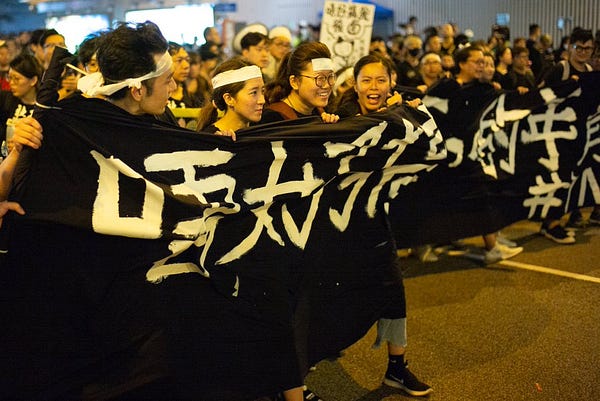
Antony’s photo reminds me of this one from Tiananmen.
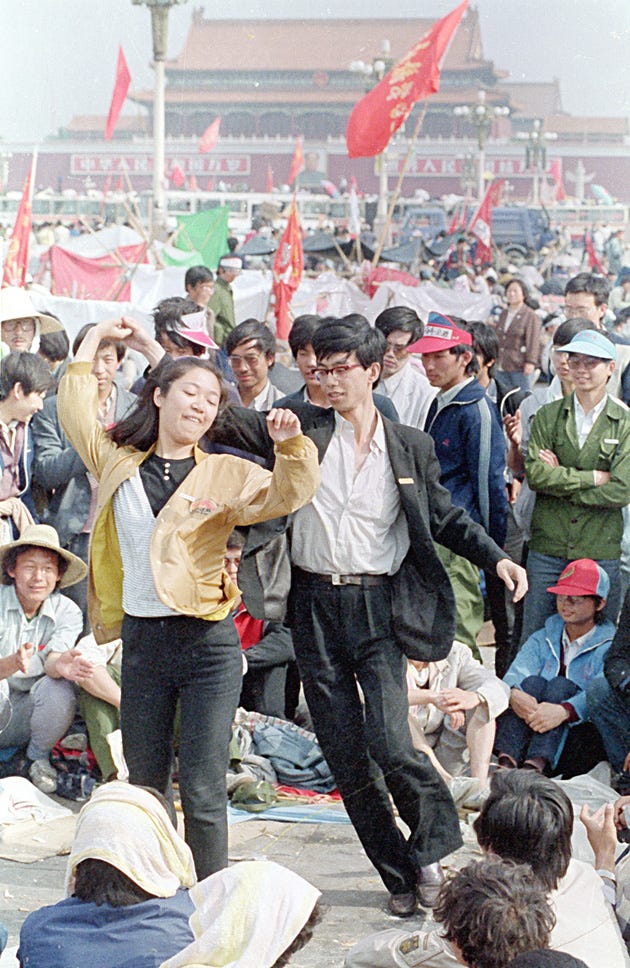
Missiles and TSMC
Back on the ‘China Invades Taiwan for TSMC’ beat, Steve Blank in War on the Rocks raises the possibility of targeted strikes on TSMC foundries in Taiwan:
China could launch a precision-guided missile strike against one of the older TSMC foundries in Taiwan to send a message. China could announce it will destroy one foundry each week until TSMC agrees to sell only to China. Even destroying all the TSMC foundries in Taiwan would still be net win for China: American military and consumer technology would no longer have advanced foundries, but China would.
This seems too self-defeating even for the CCP. I’d put the probability of invasion higher than this scenario. First off, Xi actually wants Taiwan back in the fold, viewing reunification as the potential crowning achievement of his reign. A missile strike would bring about much of the negative international reaction while making the overarching goal even harder to accomplish. A kinetic attack would likely lead to a hardening of Taiwan’s defenses and give the independence movement real legs. If relations get dire enough for the Chinese government to consider active measures against TSMC, I think a cyberattack along the lines of a Suxtnet to maintain some measure of deniability is much more probable.
Leaked Elite CCP Grumblings
Last week, a twenty-minute audio recording leaked of retired Central Party School professor Cai Xia venting frustration with the state of the modern “political zombie” CCP. I picked out some selections below and encourage you to check out a full translation at China Digital Times here and an archive of her past essays here.
So we have not solved the [main] problem—that is, our system. With this system, we’ve made it to where we are today, we’ve chosen this individual [ruler]—or, I should say, those at the top propped such a person up to the leadership position. What does this tell us? This tells us that this system is going nowhere. It is useless to try and change it. Fundamentally speaking, this system must be abandoned. As for the reform we are talking about, it is no longer about changing within the framework of the current system. This is my primary point. Some people might think when they hear this that we will need to fight a revolution once we abandon this system. That is not the case. This is my first point.
The second point is that our theory is fundamentally problematic. Putting aside whether it was correct or not for the Chinese Communist Party to have accepted Marxism-Leninism at the outset–this we are not yet discussing. The fact is, much of this theoretical stuff needs to be uprooted. Let’s say, for example, that at the time of our 4000-person congress, if Deng Xiaoping hadn’t stopped the Party from reflecting on the Cultural Revolution—not only politically denying it but also theoretically abandoning it—then we wouldn’t still be here trying to reverse the verdict on the Cultural Revolution.
Because the thing about politics is that it changes over time, it can be overturned one way, and then the other. But if you dig out the theory from its roots, destroying the ideological foundation underneath, then it would be very difficult for this Cultural Revolution business to come back. I therefore feel that, since reform and opening up, we have not solved these two most fundamental problems. One is the system, and the other is the theory. So what do we do now? My personal opinion, how should I put this… If we were to talk about the situation, we should start from the revision of the constitution. From that we would be able to see that the Party is actually already a political zombie.
In the current state of affairs, it is impossible for anyone to remedy this dangerous situation, not to mention that he [Xi] is determined to continue down this path until the end. No matter who speaks, it won’t work.
Can you even still call this a political party? It is no longer a political party, and hasn’t been one for a long time. It is just a tool in the hands of a mafia boss.
Take entrepreneurs as another example, jailing them at the drop of a hat…To protect their livelihoods, those who have the means to flee outside of China and move their assets offshore have already done so. Those with money have already left, those who are capable have left. What are we left with? We are left with just the blood-sucking red elitists and a large number of poor working people who would never have the means to emigrate. That’s why I think these are the only two groups of people left here, everyone who can leave has already left. Is there still hope for this country? There is no hope.
Everyone is performing “required actions.” Why? Because of the notion that one must toe the line and remain completely loyal. As a result, no Party members or cadres dare to make policies based on local realities. How can you when they can easily find a pretext to label you as disloyal, or defiant of the Party. The Party and the country have been put to death.
Because right now society can’t be counted on, he’s already atomized the entire Chinese society into scattered sand. All of civil society and the capacity for self-organization have been shattered. Running the country with the police, violently monitoring the people. Society itself is at the point of death.
As long as this person is still in charge, that environment will only get worse, it will not ease up on us.
China Twitter Tweets of the Week

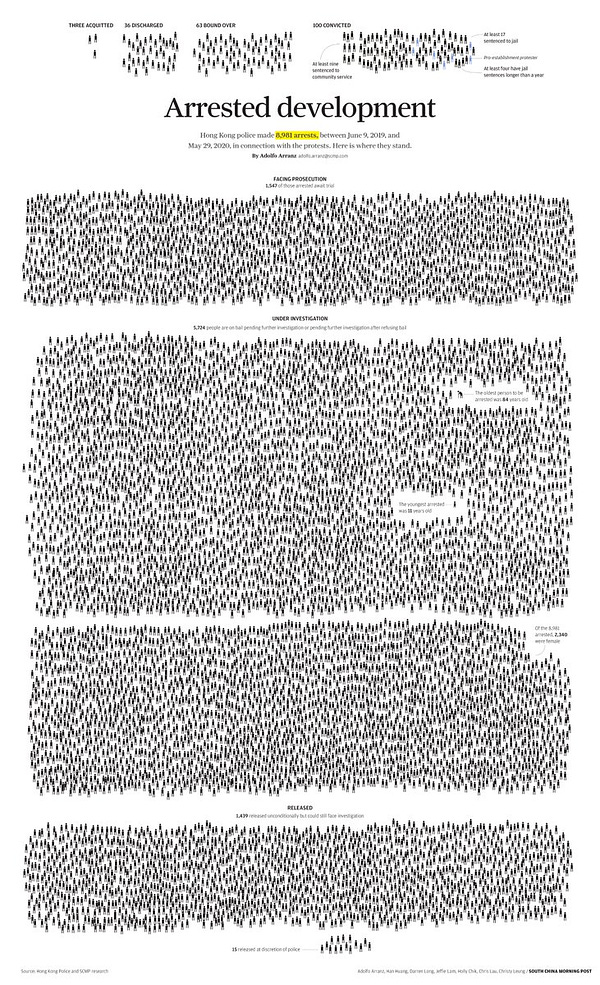




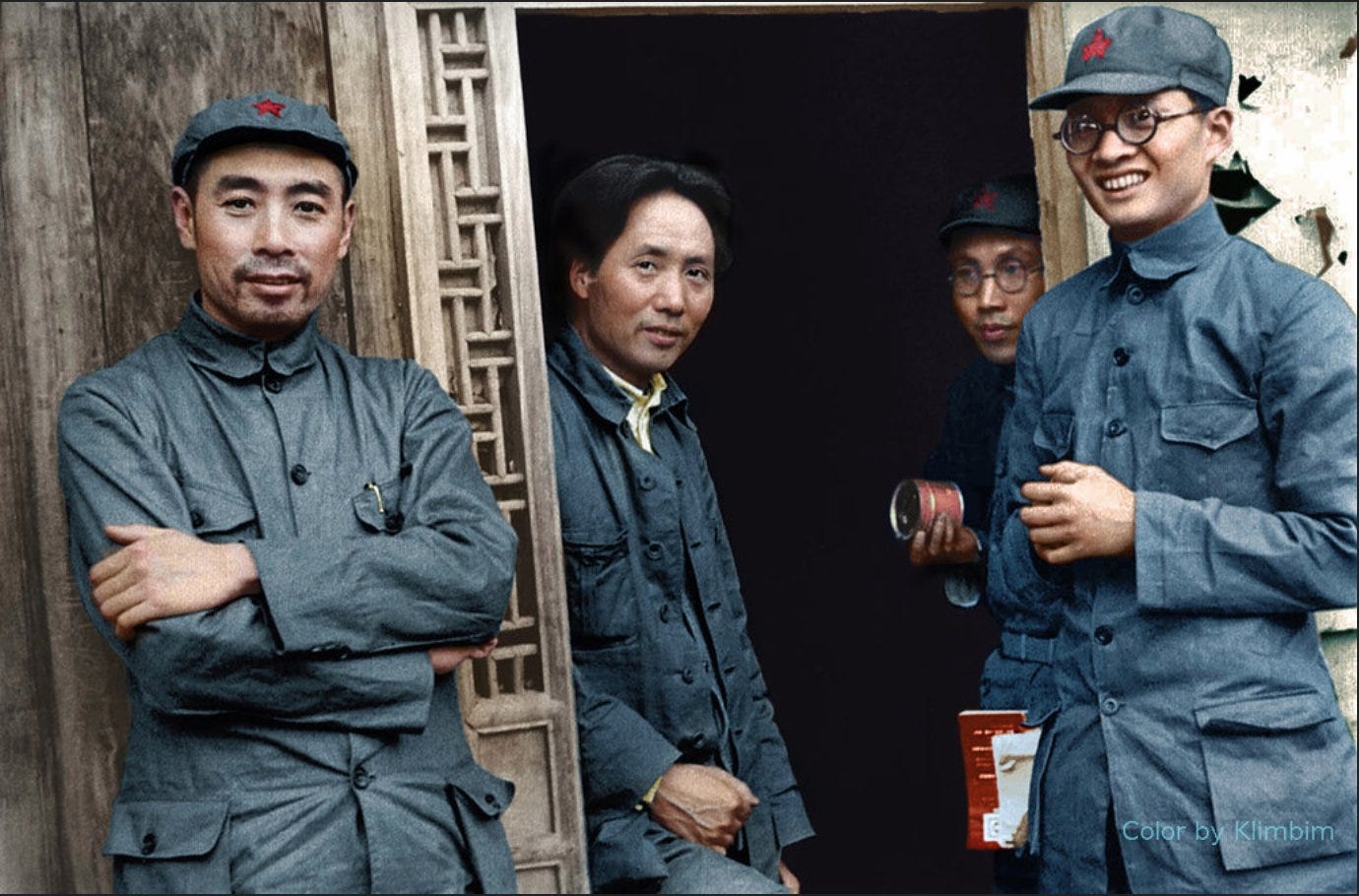


Incredibly depressing. I used this archive to find articles to translate for this newsletter and tried to get them on the podcast.

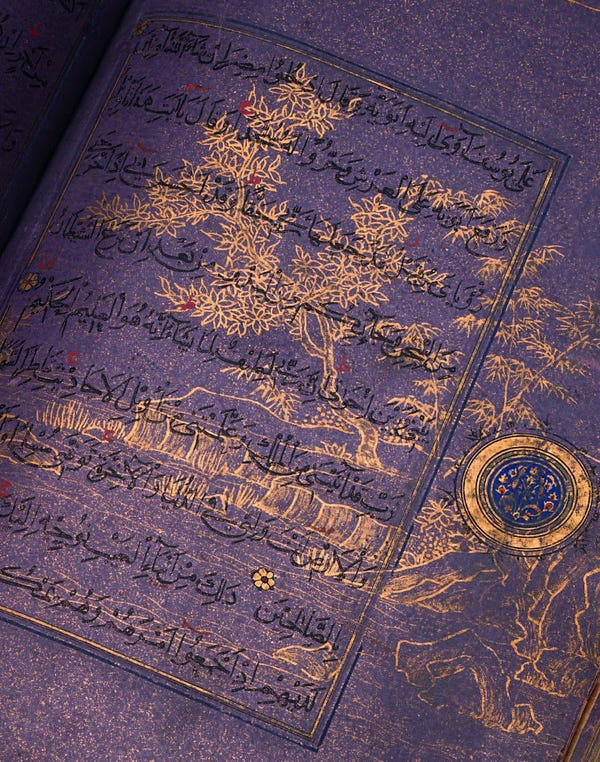

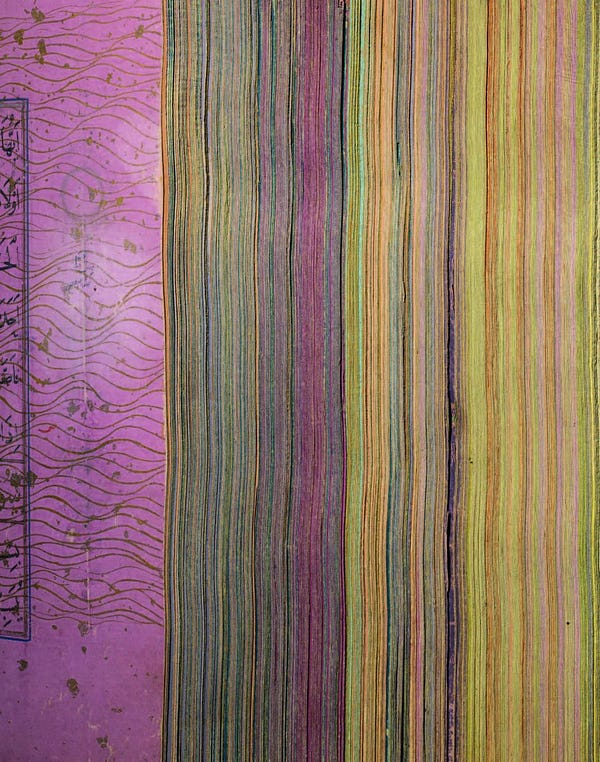

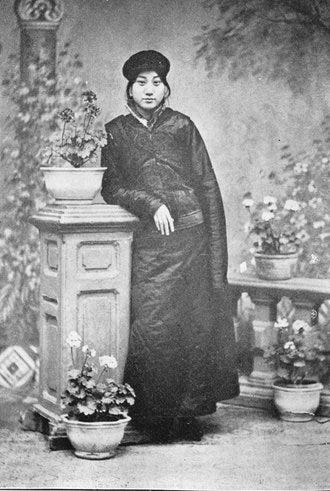

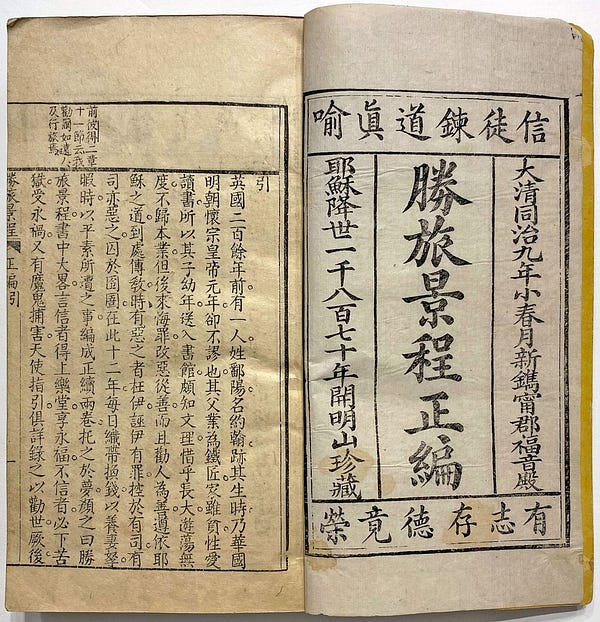
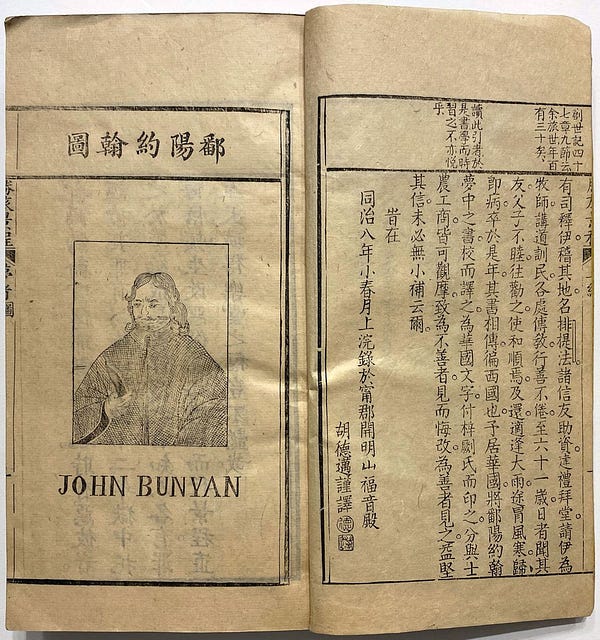


It was Isabella Steger!

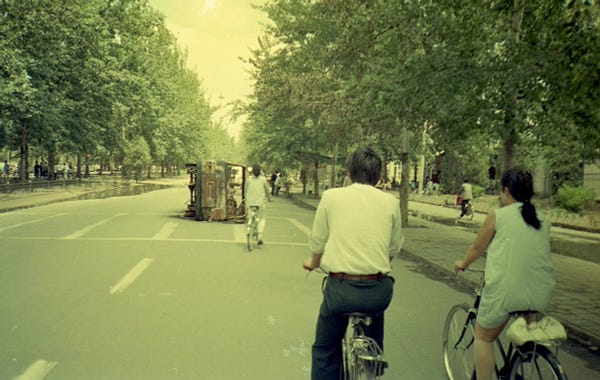
Incredible thread. Will forever change how I think of PKU. One photo from it:

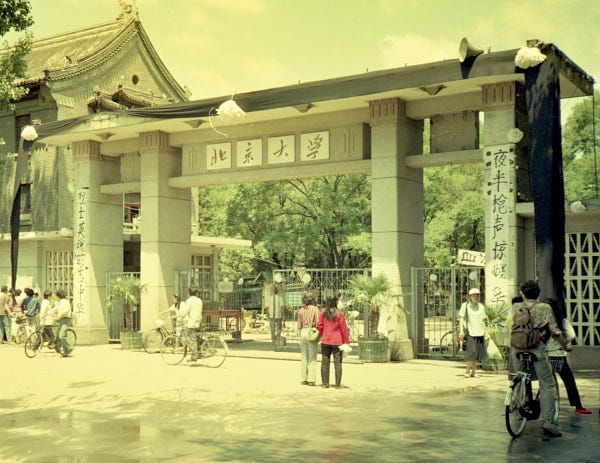
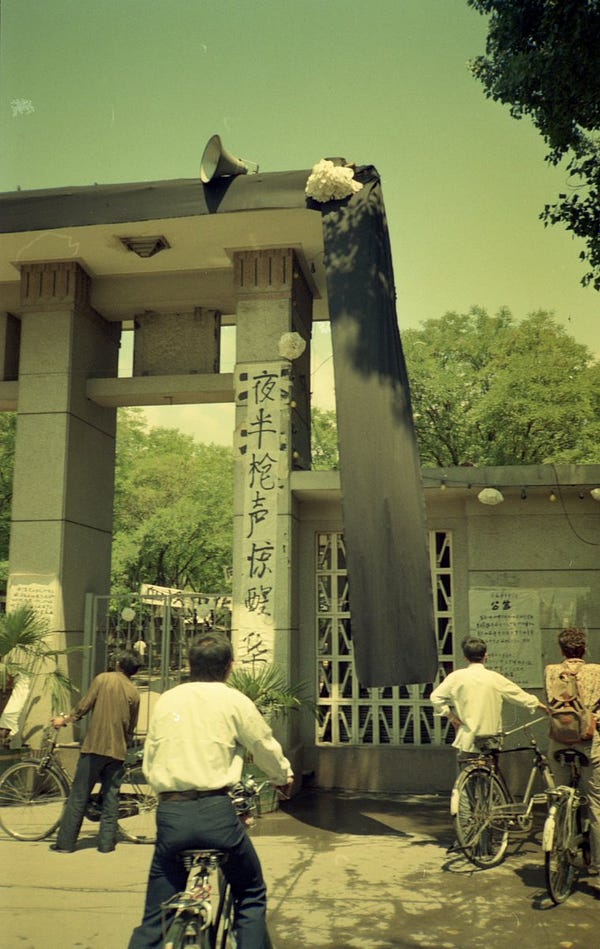
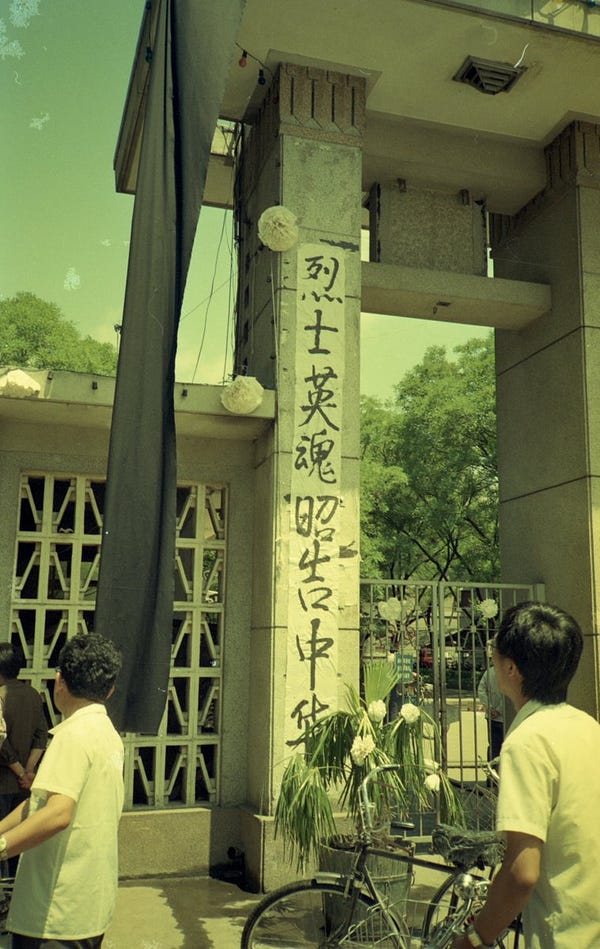
Please consider subscribing to this newsletter.



Long time follower here, really enjoyed the latest China talk as always. Keep up the good work! One thing I really miss when listening to the talks about HK protests vs Beijing and its long reach, is the much less talked about disparity between mainland Chinese and Hong Kongers. The main reason, as someone living in China, that mainlanders do not sympathize with protesters is because there is a long standing animosity between what the mainlanders see as an ungrateful, arrogant and condecending people and through that an "other". Put simply, mainland Chinese enjoy seeing HK humbled. At the same time, there seems to be some truth to this. To what degree to HK people actually look down on mainland Chinese and is it really justified? If the main problem of the conflict really is that HK Chinese regard mainland Chinese as inferior to them and because of that do not want to associate with them or share nationality, like some kind of racial hierarchy, then it will be impossible to consolidate the two sides. It would also explain why the protest have such a hard time winning over sympathisers in the mainland. Ethnic division is a taboo in China and is not discussed in Chinese media, because of this many China watchers seem to ignore this issue.
Is there any way that China talk could explore the ethnic tensions aspect of the HK protests? Looking forward to the next episode!